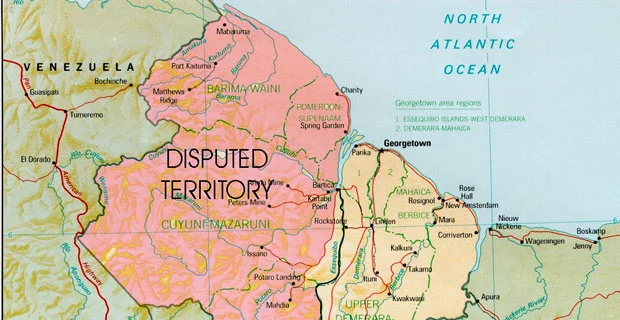Yesterday, Guyana’s government approached Carlos Amador Pérez Silva, the Venezuelan ambassador. The topic? Rising military activities near the shared border.
This area has been a tension point between the two countries.
The reason? The Esequibo region. This area spans 160,000 kilometers, rich in natural resources and minerals. Venezuela claims this territory.
In response to Guyana’s query, Ambassador Silva had an explanation. He stated the troop movement aimed to stop illegal mining. But Guyana remains cautious.
The country shared its concerns with fellow leaders in the Caribbean Community or Caricom. Moreover, they’ve communicated with other international partners.
Guyana also observes. They’ve seen reports. These reports discuss the increased personnel and military drills by Venezuelan forces close to the border.
Guyana’s top military official, Omar Khan, spoke on the issue last Tuesday. He said he’s not worried about the Venezuelan military’s presence.

Recently, in Barbados, there was a significant agreement.
Venezuela’s government and an opposition group called the Democratic Unity Platform met. They decided to defend the Esequibo region jointly.
Background Guyana and Venezuela’s Border Tensions Rise
However, the border issue has older roots. Venezuela looks to the 1966 Geneva Agreement for guidance.
Meanwhile, Guyana believes the deciding factor is the 1899 Arbitration Award. The situation took a recent turn.
This year, the International Court of Justice (ICJ) made a declaration. They believe they have the right to decide on this dispute.
Yet, Venezuela doesn’t agree with the ICJ’s decision.
The Esequibo region has long been a point of contention. Historically, both Guyana and Venezuela have staked claims to it.
Its vastness and resource wealth make it attractive. European powers also played a role in this dispute.
In the late 19th century, they set borders, which are now disputed. Venezuela and Guyana became independent nations.
Still, the Esequibo debate continued. The modern disagreement is a continuation of centuries-old tensions.

